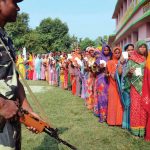Cover Story | Corona Chronicles: Dispatches
“I was ferrying e-commerce goods for the past few years. For the first time, I have been put in a position where I can save lives”
Says P Ayyanar, a truck driver, Tamil Nadu
 V Shoba
V Shoba
 V Shoba
17 Apr, 2020
V Shoba
17 Apr, 2020
The first time we talk, P Ayyanar is watching teetering stacks of medicines fill up his 20-ft truck. In a blue, star-spangled shirt, he is about to set out on a 1,000-km roundtrip from the hub in Sriperumbudur near Chennai to drop off about two tonnes of lifesaving drugs at Ulundurpet, Virudhachalam and Neyveli. In the grainy picture he sends me on WhatsApp, a sulphur sky seems to hang over the loading bay lined with trucks, all sporting the same printed label. Ayyanar doesn’t know what ‘ESSENTIAL GOODS’ means, but he has seen the bold letters elicit gut reactions on the 15 or so trips he has made during the lockdown. “Strangers have hailed me to a stop on highways and offered tender coconut and a hot lunch. Policemen smile more warmly as they wave me through checkpoints,” says the 29-year-old. “I was ferrying e-commerce goods for the past few years. For the first time, I have been put in a position where I can save lives.” Longhaul drivers like him, he says, are stereotyped as brutish animals. There is small comfort in the fact that Covid-19 has foregrounded their roles as important cogs in the socioeconomic machine. Restrictions on transport of non-essential goods and the terrifying possibility of contracting an infection on the road have kept most drivers home. Not Ayyanar. Call it smug faith or a moral imperative, he prefers to drive through the looming dark, memorising great chunks of Ilayaraja and imagining his eight-year-old son drawing him as a warrior lancing the coronavirus.
We talk again when he stops for dinner at a food stall in Chengalpattu, where he tells me, halfway into his second dosa, that he will go home tomorrow after a month. Home is a village near Pugaipatti, about 230 km south of Chennai, where his parents live with his wife and three children. Ayyanar is the sole breadwinner, but his wife, Bharathi, is the boss back home. “I will retire to the village when I am 40 or 45 and grow vegetables, sugarcane and turmeric on the two and a half acres of land we have,” he says. As a restless adolescent, Ayyanar learnt to drive after being forced to drop out of school in Class 8 when his parents couldn’t afford to pay Rs 2,000 in yearly fees. “I wasn’t a good student. I got beaten by teachers for not doing homework, and I failed in English and maths in Class 7, but I loved going to school anyway. I never missed a day. I wouldn’t know what else to do if I wasn’t at school. But no matter how much I cried and begged my father to put me in a government school, he refused. I don’t know if he gave up on me or wanted me to work—I took it to be the latter.”
It is a warm, fitful night. Ayyanar pulls up at a rest stop in Tindivanam at a little past 11 PM and orders tea—“strong and frothy”. “I never liked tea before I started driving,” he says. The taste of freedom is hard to resist now, and when he misses his wife and children, a video call usually does the trick. “I am constantly on the move, to the extent that I only know the date, not the day of the week.” From driving a “low-model truck” without a licence at the age of 16 to transport sugarcane grown around his village to a mill in Coimbatore, he quickly levelled up to a trailer with 18 gears in Saudi Arabia, where he spent two-and-a-half years. Driving was not escapism from family life but a way out of intransigent poverty, he says. Roads symbolised an expansive future, full of possibilities he did not know existed. “My father got hurt in an accident that left him incapable of manual work. We had a lot of debt and the family urged me to go abroad to earn. I missed my wife but we managed to settle all our debts. About Rs 7 lakh including interest. Interest—do you know what that is?” Urban debt seems to him an oxymoron and when I tell him about student loans and short-term payday credit, he is consumed by a paroxysm of laughs. He prefers parochial village life to the complexities of modern society. “The good thing about being on the road is that nothing sticks to me, definitely not this urban culture of consumerism.”
The finances of the family were pretty dire when he left, a father of two, for Rafha in Saudi Arabia in 2015. At Rs 35,000 a month, the wages were not high, but they were twice as much as he was making back home. “We had AC rooms. The trucks were so fancy that I had to search for the thumb-sized gear stick the first time I drove one.” He barrelled down a desert road carrying cement—but just the once, for he learnt quickly that cameras tracked every vehicle and police caught up with you in a matter of minutes. “The owner took good care of us and in fact sent me home on paid leave for five months with a return ticket, but I came across another opportunity here that paid better and decided not to go back.” It has been two and a half years since he joined Bannari Logistics, a leading e-commerce partner in south India with a fleet of 75 trucks. “Only 10 of our trucks are plying now with medicines and other essentials,” says Aravind S, of Bannari Logistics. “We have been sending packed food with our drivers and we have requested all the hubs to provide meals, as highway eateries are shut now. We are paying a basic minimum wage to drivers who have opted to stay home, and those who are risking it all by being on the road are rewarded with 1.5x the wages they would normally draw,” Aravind says. Ayyanar stands to net Rs 4,500 for a trip that would have been worth Rs 3,000 in normal times.
“Strangers have hailed me to a stop on highways and offered tender coconut and a hot lunch. Policemen smile more warmly as they wave me through checkpoints”
Share this on 

The truck engine yammering away into the night, Ayyanar says, sounds like his baby girl’s echolalia. It is past 1AM and he is at Ulundurpet, waiting for cargo to be unloaded. A year old, Dhanashree is the darling of the family. “I had always wanted a girl. It was out of social pressure that we had the first child immediately after getting married. We waited two years to have the second one and when I heard the baby wail, sitting outside the labour room, I was positive it was a girl. But they told me it was a boy. It just so happened that I got called away for a trip and I didn’t see my newborn until he was four days old. My wife still taunts me that it was because she didn’t give me a girl child that time.” When they had a third—“and final”, he says—child a year ago, he spent days on the internet researching baby names, numerology and astrology. “To me, a girl represents hope and life. She holds the power to remake society,” he says, in a rare flash of intensity. When he feels diminished, consumed by self-doubt—he is absentminded, he says; once he even forgot his children’s ages during a parent-teacher’s meeting—his mind harks back to when he fell in love with Bharathi and decided to elope with her, braving a violent mob at the age of 20. “She was just 16. But she saw something in me. We had been together for nine years—even before sprouting three leaves, as they say mockingly in Tamil—but her father wanted her to marry someone richer. We ran away in a tempo to Samayapuram and waited two days for an auspicious moment to tie the knot. Meanwhile, tension had built up in the village and my relatives had to flee to safety. When we returned, we went straight to the police station. The [sub-inspector] was a friend of mine, thanks to all the goods runs I had been making. He put my father-in-law behind bars. My wife, who was even less educated than I—she had dropped out after Class 6—did not flinch when her father confronted her. We all draw strength from such women in our lives, no?”
He tells his story in bitesize tranches—20-30-second-long voice messages, off-focus selfies taken on his ASUS M2 Android, calls at tea breaks. He makes friends easily. He has just built a new house in the village with the Rs 9 lakh he had saved up, and it has a room each for every member of the family. “It is getting painted now. I like blues—the colour of the sky—but my wife says I am a farmer and should be bound to the land. So green it is,” he says.
When he calls me the next afternoon, it is like jumpcutting to a different world. If the road is one frame of reference in Ayyanar’s life, the village is the other, and he vacillates between the two. He is a happy man today, having just awoken from a reverie following a sumptuous meal cooked by Bharathi. “He is harvesting melons and giving them away to neighbours,” Ayyanar says. His own granary is full after a harvest of urad dal worth Rs 45,000. “If it rains, my wife scatters ulundhu [urad] or kambu [pearl millet]. We don’t have the manpower to irrigate or tend to the farm properly. So anything we get is a bonus.”
Bharathi likes to stay home, almost as much as he likes to be out. He withdrew Rs 20,000 from an ATM en route to replenish her wallet. “I always make sure she has enough cash. She asks little of me. She likes saris, jewellery when I can afford it, and most of all she likes to be surprised on our anniversary or her birthday. I almost never remember, though. This is the only thing we fight about,” he says. “I haven’t told her yet that I am leaving for Chengalpattu in a couple of hours. She cries each time, and she has been begging me not to work during the lockdown.” Barely 7 km from the village of 180-200 families, in Elavasanurkottai, a man has died of a Covid-19 infection. “He attended the Jamaat event in Delhi. Two-three others from neighbouring villages also went with him. They are absconding now and police are trying to track them down,” he says.
His boys go to a private school and the older one is already more comfortable wielding a smartphone than his parents. When he plucks the phone out of the child’s hands, he cries in unrehearsed anguish. Over the phone call, Ayyanar apologises for the noise but not for spoiling kids. “I want their childhood to be nothing like mine.” After a prayer at the Amman temple nearby and play time with his daughter, Ayyanar is back on the highway to Chennai. He reaches the hub at 3AM and promptly sends me a voice message. The roads were empty, he says, and it felt like bearing witness to some lost kingdom. He hopes to spend some time hanging out with other drivers, watching viral TikTok videos and talking politics, before he drives off to Puducherry, Villianur and Cuddalore. A shorter trip this time, but one just as important.
Click here to read all Coronavirus related articles
/wp-content/uploads/2020/04/Truckdriver.jpg)

/wp-content/uploads/2025/06/Cover-OpenMinds2025.jpg)














More Columns
Puri Marks Sixth Major Stampede of The Year Open
Under the sunlit skies, in the city of Copernicus Sabin Iqbal
EC uploads Bihar’s 2003 electoral roll to ease document submission Open